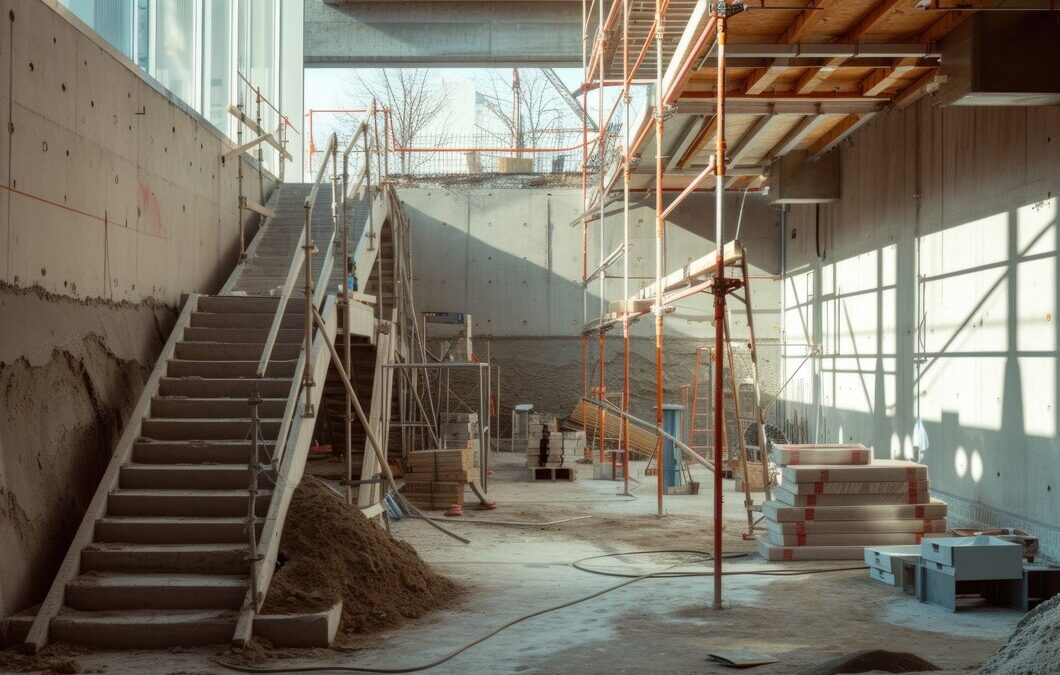Foundations are the backbone of your home, keeping everything above them safe and secure. Even small foundation problems can cause big worries if they’re not caught early. Small cracks, doors that stick, or floors that aren’t level might seem minor, but they can hint at more serious issues under the surface.
Recognizing these early signs is crucial. It helps you take quick action to maintain your home’s stability. Simple repairs can often address these problems before they escalate, saving you time and money. However, knowing what to look for and when to act can make all the difference in keeping your home safe.
It’s also important to know when these small signs need a closer look by professionals. This ensures that your foundation remains strong and your home stays protected. By understanding and managing these small issues, you can maintain a safe and comfortable living space for you and your family.
Recognizing Early Signs of Foundation Issues
Catching foundation issues early is key to preventing extensive damage. Some common indicators might seem minor, but they can signal underlying problems. Identifying these signs can help you address issues before they become more serious.
One of the first signs to watch for is small cracks in walls or ceilings. These often appear near windows, doors, or corners of rooms. While minor cracking can result from natural settling, pay attention to widening cracks or any that seem to grow over time.
Sticking doors and windows are another clue. If doors are difficult to close or open, it might be due to shifting in the foundation. This also applies to windows that suddenly become hard to operate. The misalignment can indicate the foundation is not stable.
Uneven floors deserve immediate attention. If you notice a slight slope or if the floor feels bouncy, it could mean the foundation is starting to settle unevenly. This not only disturbs the balance of your home but can also lead to further structural issues.
Ignoring these signs can lead to serious consequences. Small issues can escalate, affecting home safety and resulting in expensive repairs. Recognizing these early indicators allows you to protect your home and ensure the safety of everyone inside it.
Simple Home Fixes for Minor Problems
For minor foundation problems, there are practical and simple fixes you can tackle yourself. Addressing these issues promptly helps prevent them from getting worse.
1. Sealing Cracks: Fill small wall and floor cracks with a concrete sealant. Clean out the area first, ensuring there’s no debris, and apply the sealant using a caulking gun for best results.
2. Adjusting Drainage: Ensure water flows away from your home. Keep gutters clean, extend downspouts, and grade soil so water runs away from the foundation. Proper drainage is crucial in preventing foundation damage.
3. Ventilation Improvement: Good airflow in basements and crawl spaces can reduce moisture levels. Use fans or dehumidifiers to keep these areas dry, as excess moisture can weaken the foundation.
Materials required for these tasks include concrete sealant, a caulking gun, gutter extensions, and possibly a dehumidifier. When performing these fixes, always wear safety gear such as gloves and eye protection.
These DIY methods address minor problems effectively, saving you time and money in the long run. Regularly maintaining your home’s foundation can prevent small issues from turning into major repairs, ensuring the structural well-being of your house.
Preventative Actions to Avoid Larger Issues
Preventing major foundation problems starts with some smart, everyday habits. A healthy foundation depends on proper landscaping and consistent moisture control. These go a long way in keeping your home steady and secure.
Start by checking that your yard slopes away from your home. This helps water flow safely away from your foundation. Ensure that your gutters and downspouts are clean and divert water at least five feet away. Standing water can lead to soil erosion and affect foundation stability.
Proper moisture control is also key. During dry spells, gently water the soil around your foundation to prevent it from drying out and shrinking. This lessens the risk of the soil pulling away from your home, which can cause cracks.
Landscaping choices play a big role, too. Plant trees and large shrubs at a safe distance from your home, as their roots can grow under and damage the foundation. Choose plants with shallow roots near the foundation.
Conduct regular inspections of your foundation and surrounding area. Look for early warning signs like small cracks or minor soil shifts. These checks enable you to address potential problems early before they escalate into costly fixes.
When Professional Help Is Needed
Sometimes minor foundation problems are just the tip of the iceberg, hinting at deeper issues that require professional assistance. Knowing when to turn to experts is crucial for maintaining the safety and longevity of your home.
If you notice cracks growing larger or new ones appearing, it might be time for a professional evaluation. Doors and windows that increasingly stick or won’t close properly are signs that your foundation might be shifting. Sloping or uneven floors can also suggest underlying issues.
Professionals provide a thorough assessment of your foundation’s condition. They use specialized tools and techniques to understand what’s happening beneath the surface. This can include evaluating soil stability, moisture levels, and structural integrity.
Experts can recommend and implement long-term solutions, such as underpinning or soil stabilization, to fix these complex issues. With years of experience, they ensure that your foundation meets safety standards and remains secure against future problems.
Don’t wait until minor issues escalate into significant threats. Trusted professionals can ensure your foundation’s health and your home’s safety, offering peace of mind for you and your family.
Conclusion
Maintaining a solid foundation is fundamental to keeping your home safe and comfortable. By recognizing early signs of trouble and applying simple fixes, you can often handle issues right at home. However, attentive care and regular maintenance play vital roles in safeguarding against larger problems.
Preventative measures, like proper landscaping and moisture control, help protect your foundation against the elements. Regular inspections allow you to catch small changes before they lead to major repairs. These steps, combined with the occasional need for expert evaluations, make a big difference in home maintenance.
For bigger challenges or when you’re unsure, seeking professional help ensures your foundation is correctly assessed and treated. Lift-Texas Construction provides the expertise and solutions you need to maintain your home’s structural stability. Don’t wait for little issues to grow—contact our team today to keep your home on solid ground with our foundation repair services.

